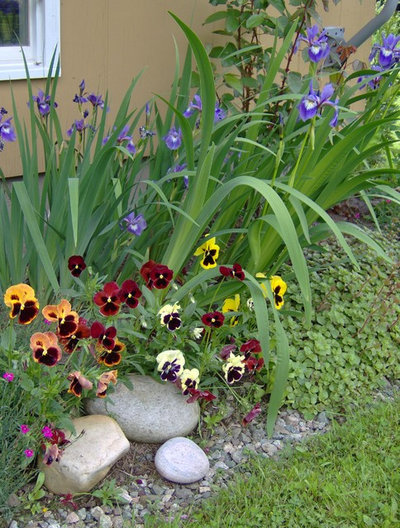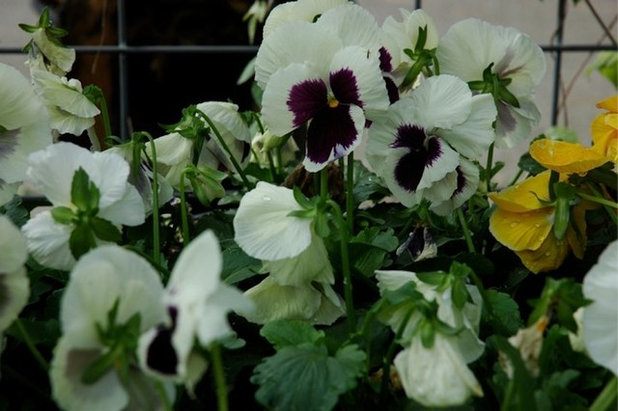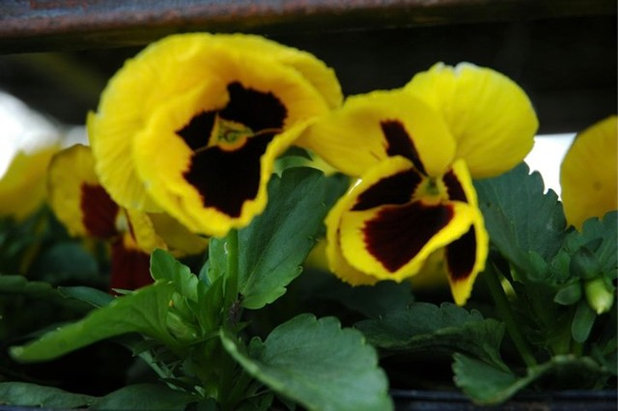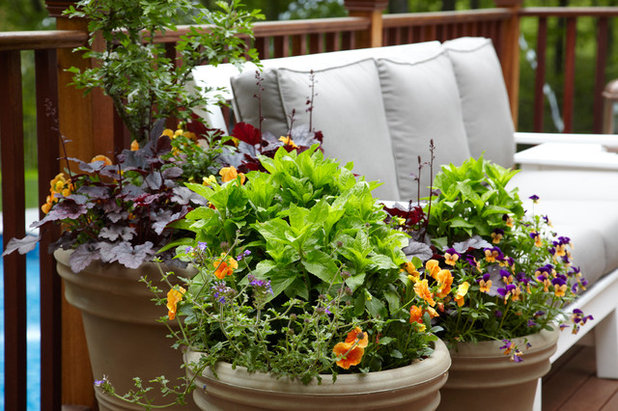There are few flowers more charming than the pansy. Yes, it's one of those blooms that you used to see in your grandma's garden, but there is a reason for its long-standing appeal. Its sunny, cheerful face, combined with low maintenance and a wide range of colors, makes it a classic choice for cooler-weather gardening. While pansies will grow in nearly any zone, they are a great choice for gardeners in the South who want to provide a saturated spectacle in their fall and winter gardens.

Sherri Fitzgerald - Ultimate Decor
Botanical name: ViolaCommon name: Pansy
USDA zones: 7 to 11 during the winter; 6 and lower during the summer (find your zone); can overwinter in colder climates once well established.
Water requirement: Consistently moist soil
Light requirement: Full to partial sun
Mature size: Up to 9 inches tall and wide
Benefits and tolerances: Nonstop blooming and strong color in the garden
Seasonal interest:Dependably blooms through two seasons
When to plant: Fall for southern climates, spring for northern climates.

J. Peterson Garden Design
Distinguishing traits. Pansies have one of three basic color patterns — one solid, clear color; a solid color with black "pencil" markings radiating from the center; or solid color with a dark center. Colors include yellow, purple, lavender, russet, orange, white, red and even black. Some varieties, particularly the yellow and blue ones, have a subtle scent that is most noticeable in the early morning or at dusk.

J. Peterson Garden Design
How to use it. Pansies are unstoppable bloomers in the front of a mixed-perennial or annual bed, as well as features in container plantings.
Use one color or variety for the highest impact, or choose two different colors and plant in masses or blocks. Using a large number of different colors tends to water down the overall effect. Both the leaves and flowers of pansies are edible, perfect for garnishes or for making syrups, flavored honey or salads.
Pair pansies with
dusty miller (Senecio cineraria),
viola (Viola),
English dais (Bellis perennis),
sweet alyssum (Lobularia maritima) and
snapdragon (Antirrhinum majus).

Westover Landscape Design, Inc.
Planting notes. Plant pansies in a sunny location — they will tolerate some light shade but will become leggy and unattractive if they're grown in deeper shade. Make sure your soil is loose and well drained, and fertilize monthly with a nitrate-based plant food for bigger and more profuse blooms. Keep your pansies consistently moist for optimal health and best results.
More:Bright Plants for Flower Beds That Wow





